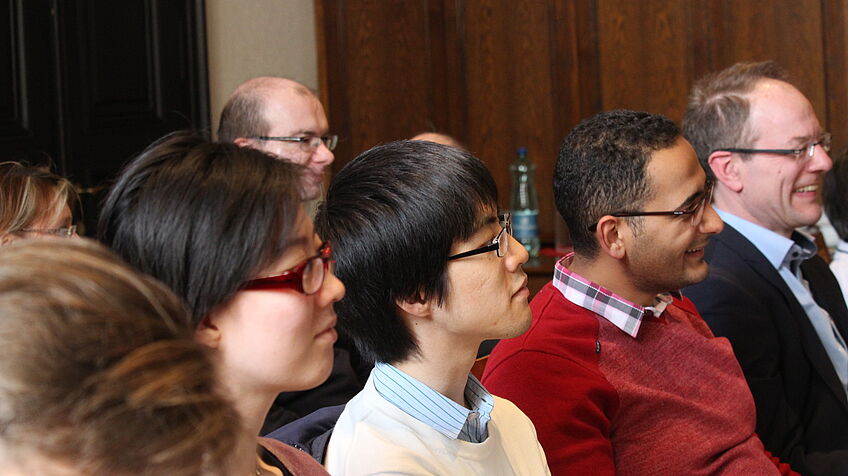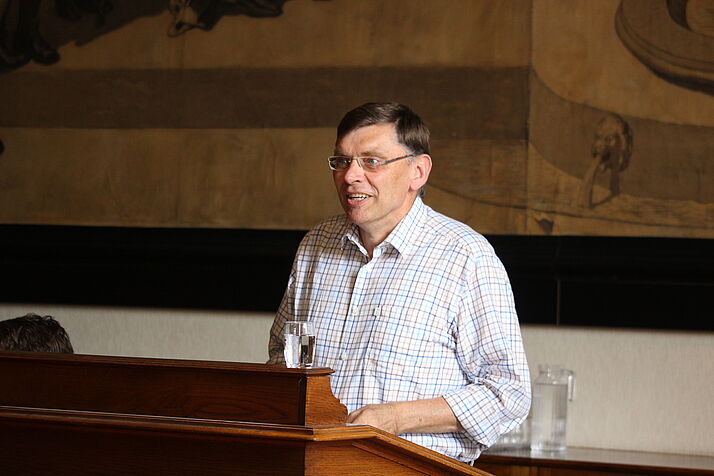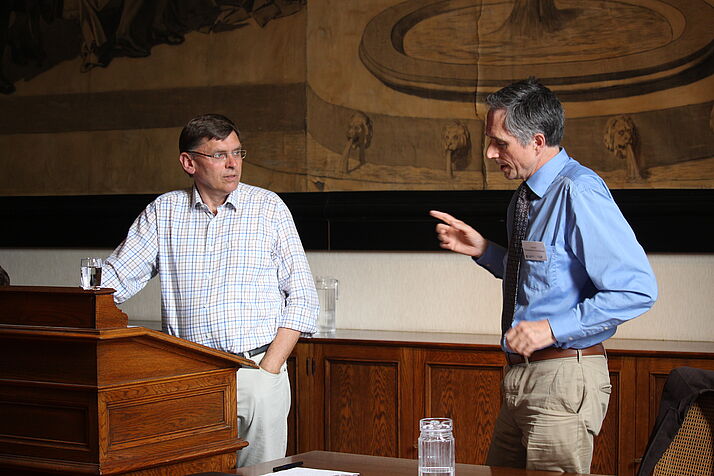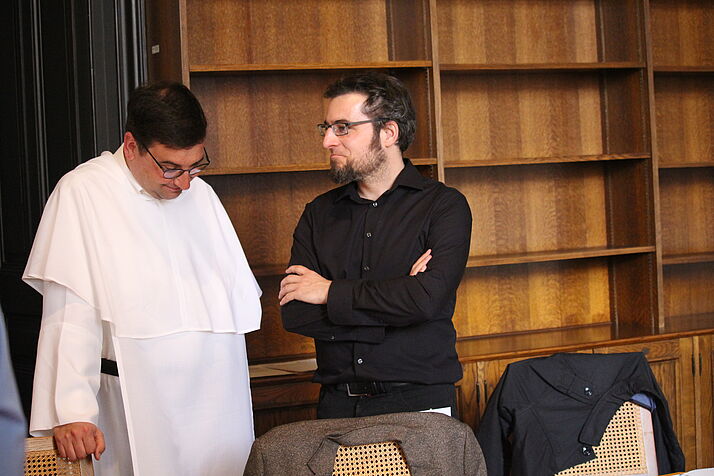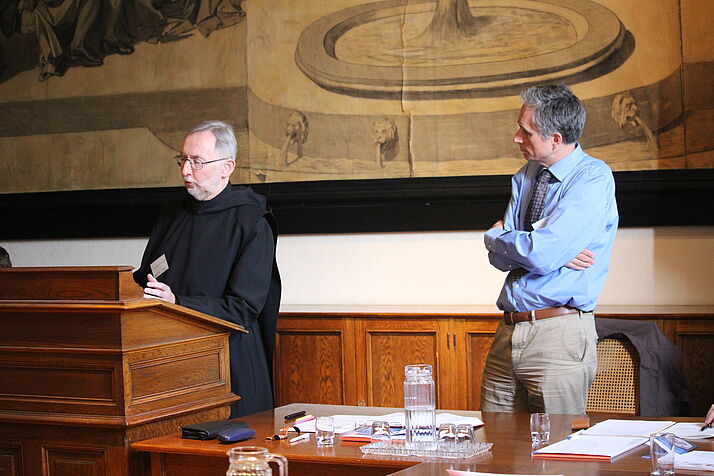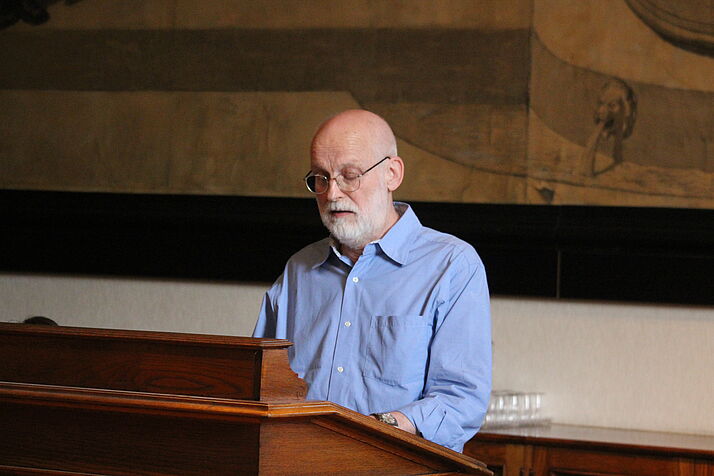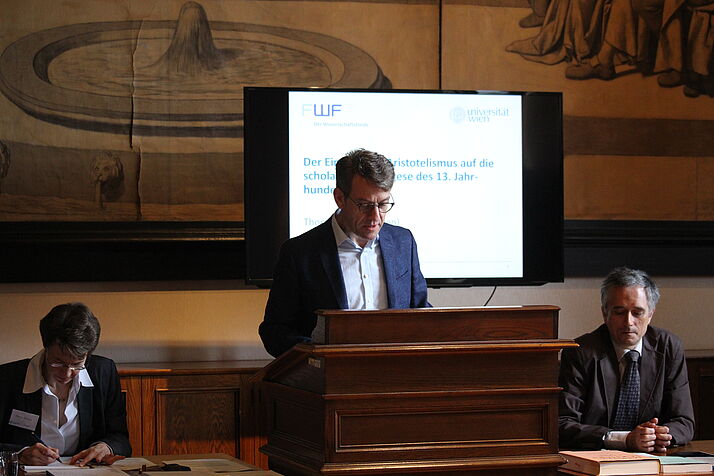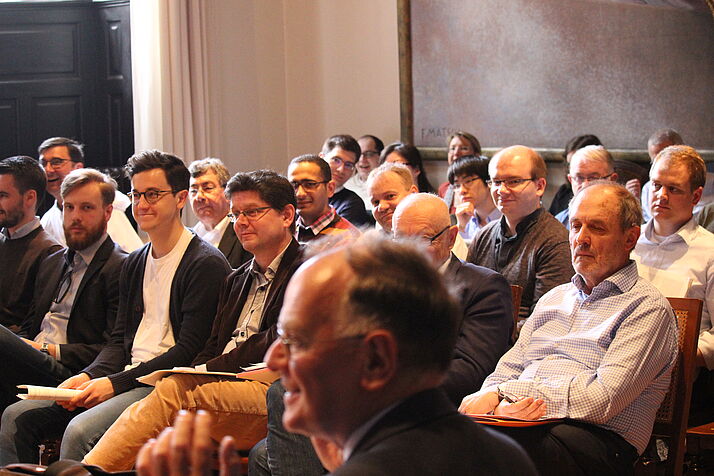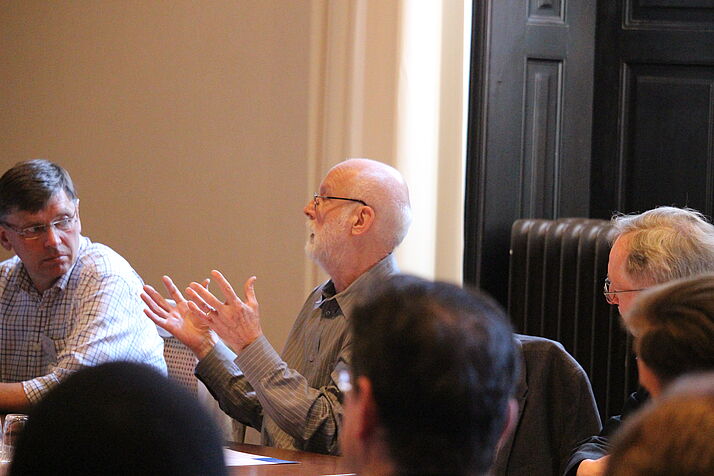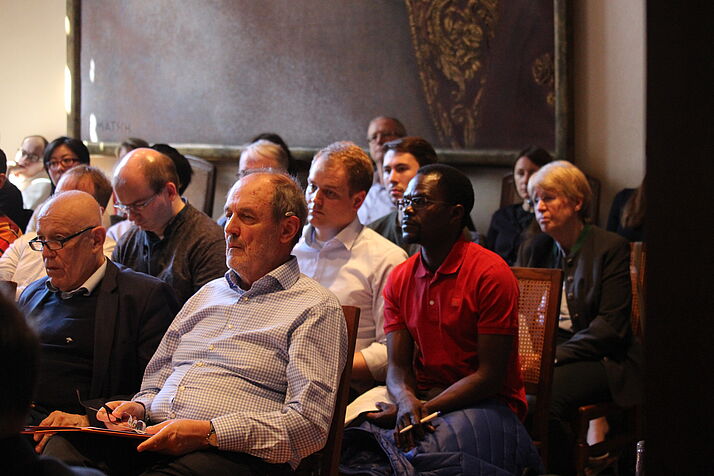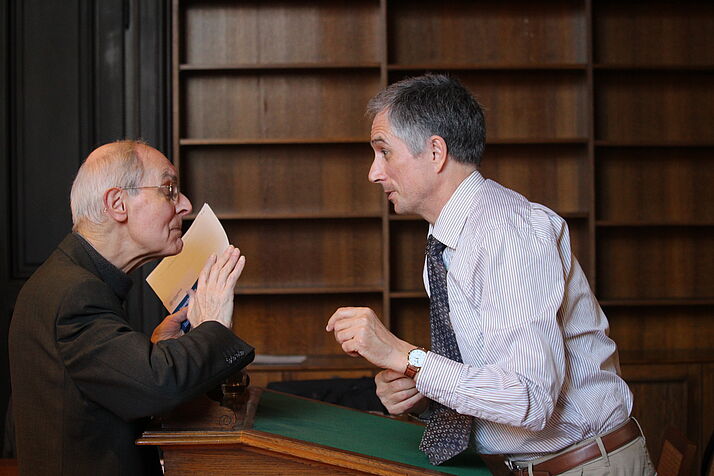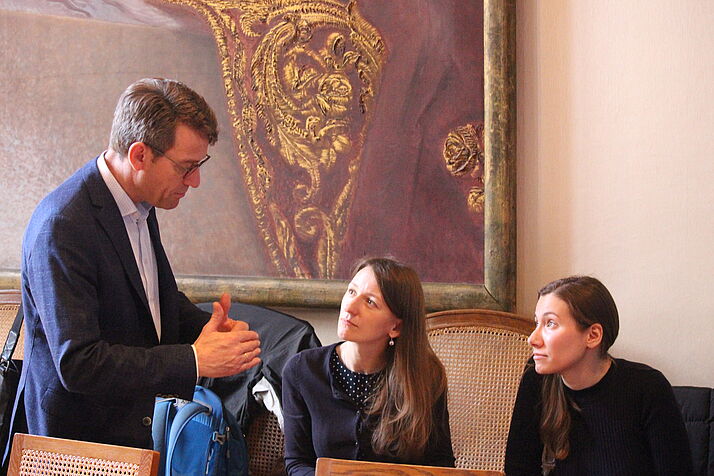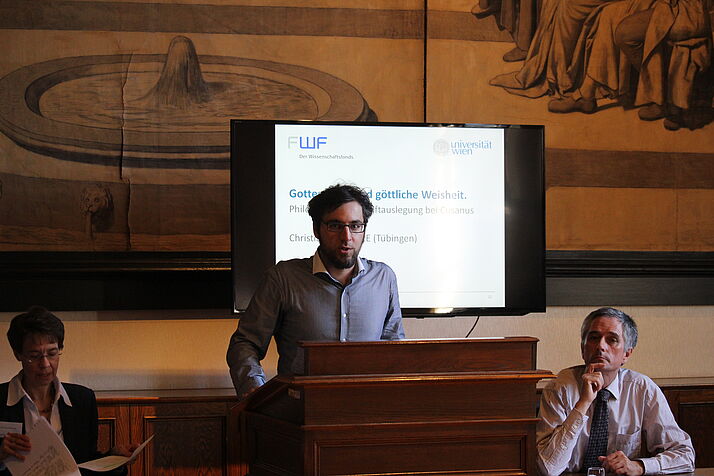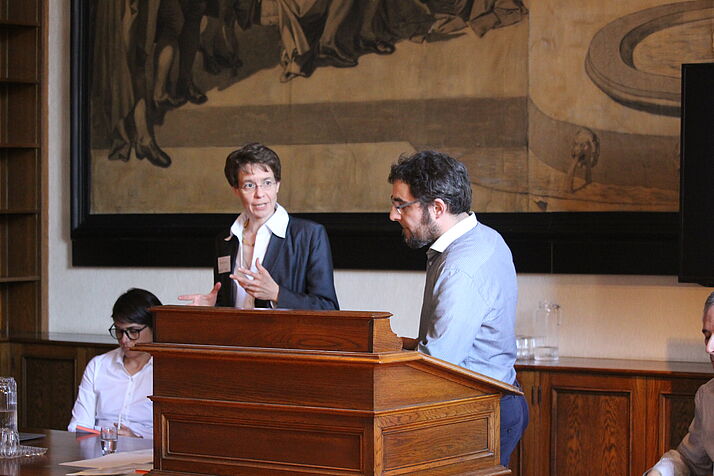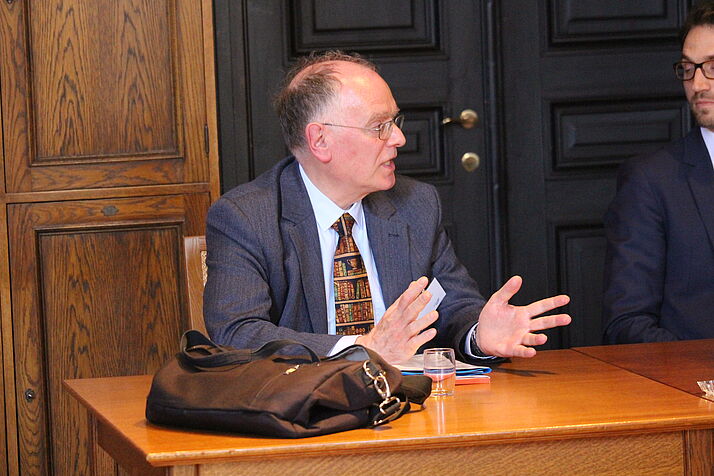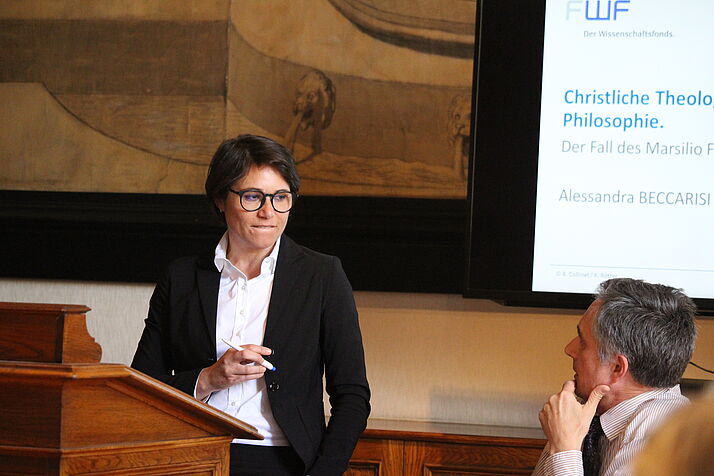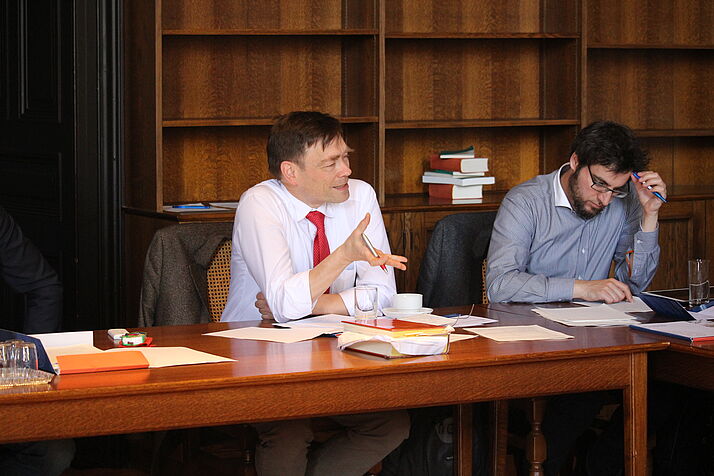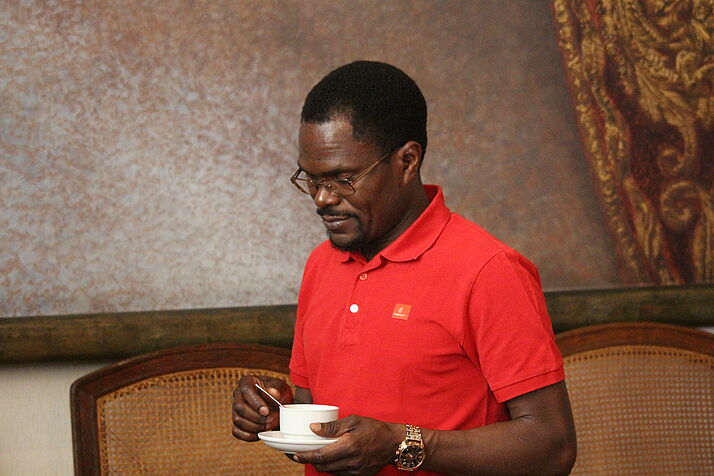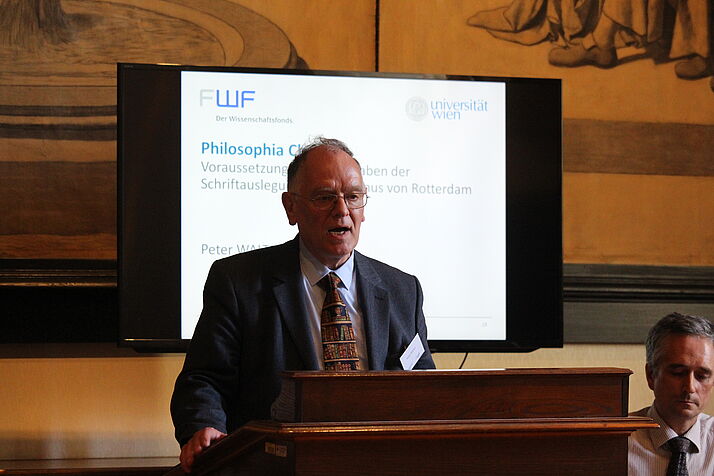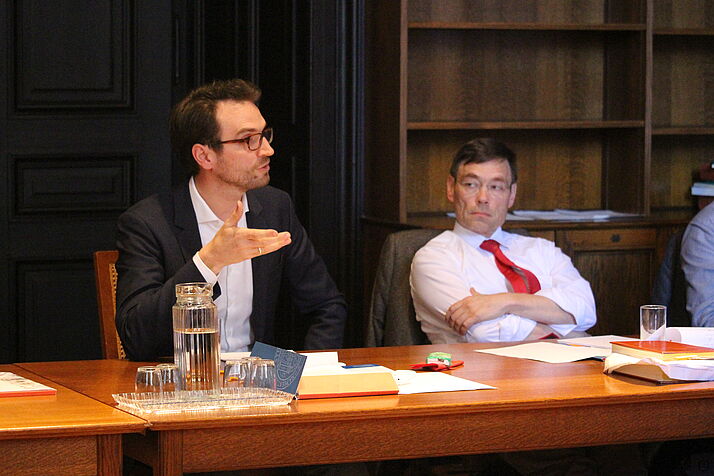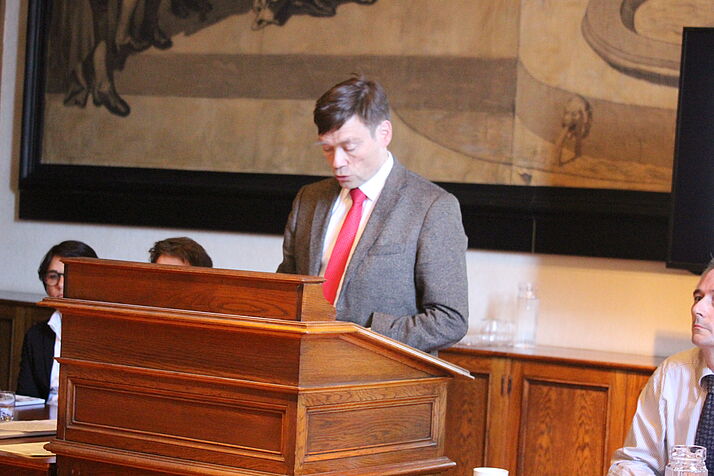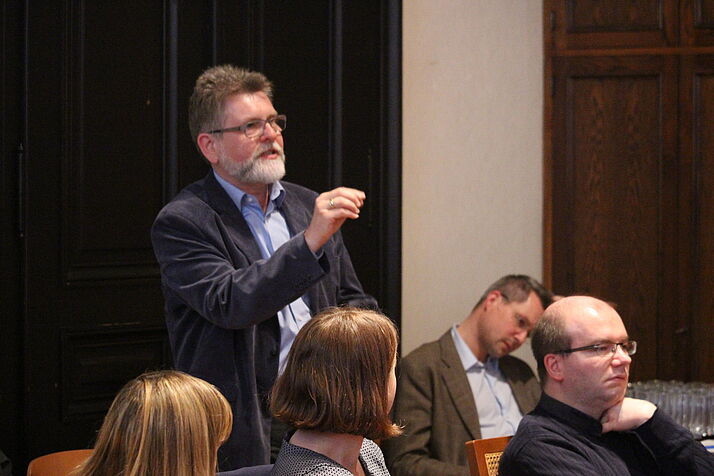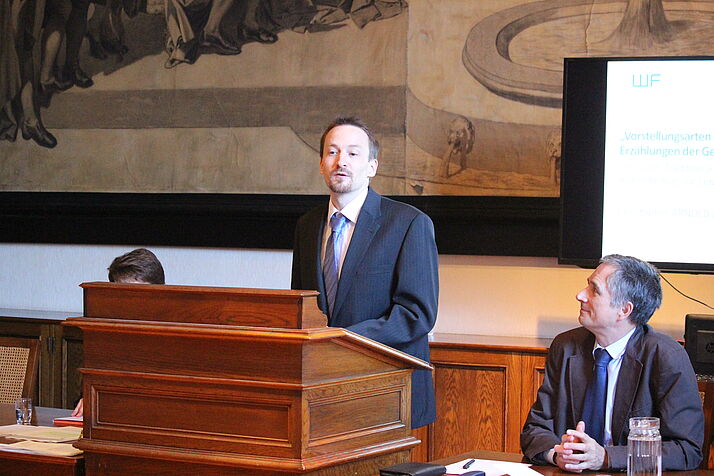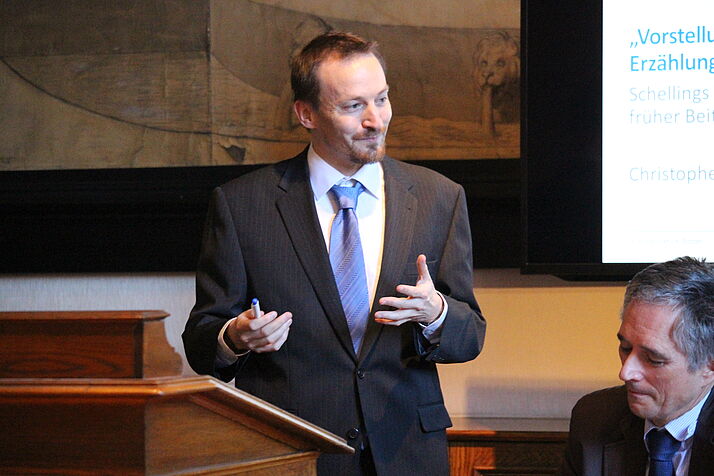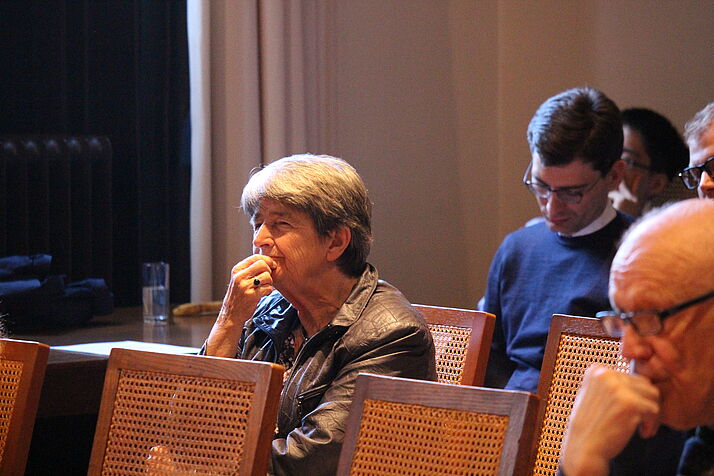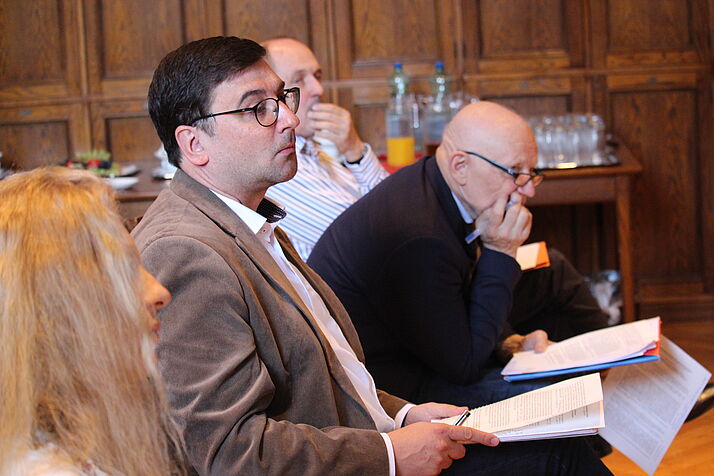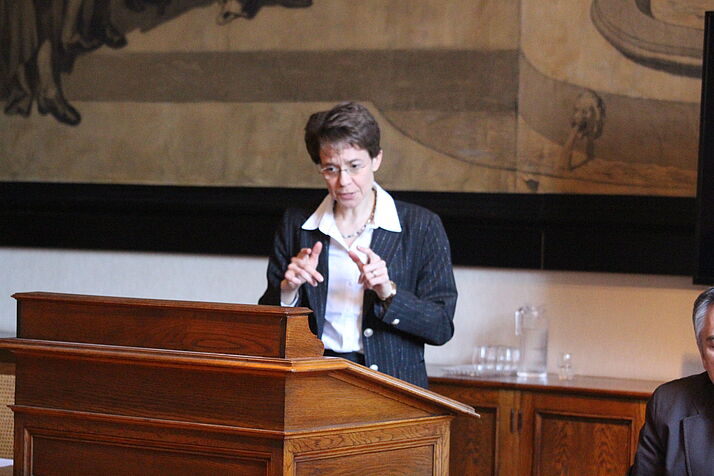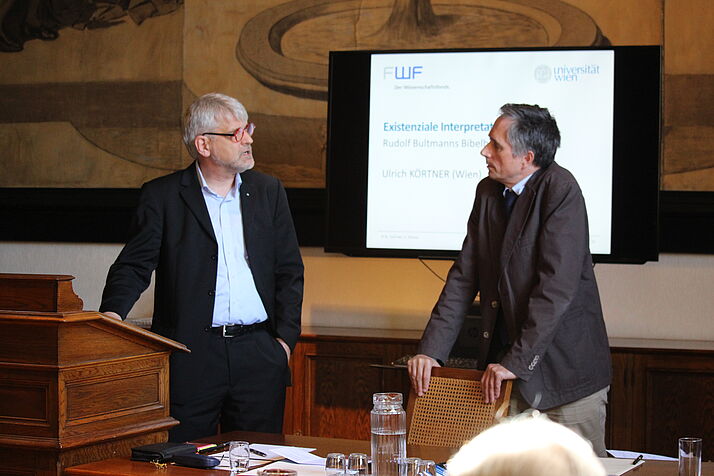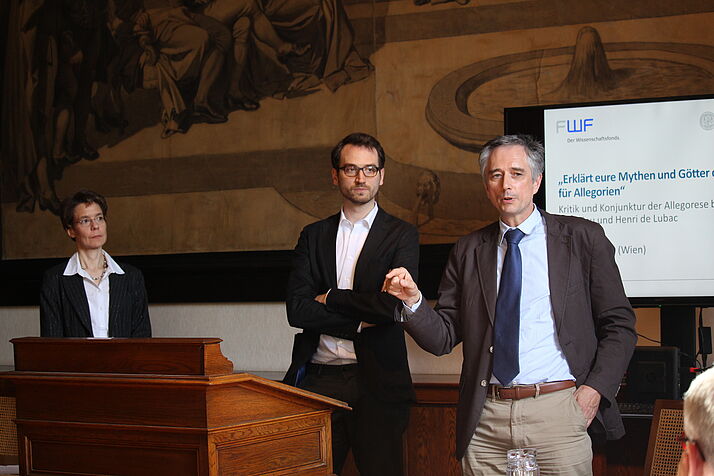"Gottes-Rede" in the Gospel of John
Dr. Veronika Burz-Tropper
FWF-Projekt T627
Hertha-Firnberg-Projekt
The main research questions will be: What does the Gospel of John say about God? This means: What does Jesus as “the only one who is God” say about God in the Gospel of John? Which images, motifs and tradition can be depicted? Which general aspects can be summarized in a synthetic approach analyzing (ho) theos in the Gospel of John? "Gottes-Rede" – that is Theo-logy in the strict sense of the word – has come less into view in New Testament scholarship compared to Christology, ecclesiology and pneumatology, soteriology and eschatology. The proposed project will focus on the Fourth Gospel as an example for a specific New Testament document and its statements on God.
For this purpose the Gospel’s present final form will be analyzed. The last verse of the Prologue (John 1:1-18) explicitly reveals Jesus as the exegete of the Father: “No one has ever seen God, (the) only one who is God, who is in the bosom of the Father, he reported/interpreted/revealed.” Assuming that the prologue functions as opening of the Gospel and therefore decidedly gives a reading guide, the words of Jesus concerning God ought to be examined, since they work on an intratextual level.
My thesis builds upon the assumption that John as well as the Johannine school very much present the God of the Old Testament as Jesus’ God, even though direct quotations of Old Testament texts are missing. Thus, John and the Johannine school depend to a large extent on the OT as a hypotext, perhaps even more than the Synoptics. Alongside with the OT as a hypotext, contemporary early Jewish, esp. Hellenistic, literature has to be taken into account, since images that can be found in those texts almost certainly might have influenced the editor/s of the Gospel of John.
Considering the most important images in the Gospel surely the I-am-statements are to be analyzed taking into account the assertions in 10:30 and 14:6b, 7, 9, which both depend on 1:18, these I-am-statements also need to be discussed, especially on their attitude towards the nature of God. Particularly, the origins of the images and metaphors of the seven classical I-am-statements shall be considered and what they reveal about God in John’sGospel. Furthermore, the most frequently used image of God in the Gospel of John, namely the image of God as father will be taken into account using also here the motif- and tradition- history.
A few special sayings about God will shade further light on the Johannine characterization of God (3:33; 4:24; 12:28).
This comprehensive study of relevant passages, images and metaphors should result in afull and synthetic view of “Gottes-Rede” in the Gospel of John.
Duration: 23.06.2014-22.09.2021 (11.01.2015-04.09.2016 aufgrund von Elternkarenz unterbrochen)
God's Questions: Ambivalence in Irony in Job 38:1-42:6
Dr. Tobias Häner
(FWF Projekt M 2395 - G 24)
Duration: 01.08.2018 – 31.07.2020
God's extensive speeches in the final part of the Book of Job (38:1–39:30 and 40:6–41:26) consist to large parts of rhetorical questions and challenges, which convey an ironic tone. The describtions of the wild animals (or beasts) that dominate both speeches feature a high degree of ambiguity.
The aim of my study is to uncover the pragmatic function of the ambiguities and ironies in Job 38:1–42:6. By this, I want to demonstrate the importance of the rhetorical dimension of God's speeches. Only by basing the textual analysis on the rhetorical impact on the reader, it is possible the understand in which way YHWH's final speeches truly are an answer to Job.
The Saved Saviour: Exo 1-2 in Patristic and Rabbinic Interpretation
Dr. Agnethe Siquans
(FWF-Einzelprojekt P 28441-G24)
Duration: 01.03.2016-28.02.2019
The project will deal with patristic and rabbinic interpretations of Exo 1-2, the narrative of the birth, youth, and twofold salvation of Moses (Exo 2:1-22), and the events immediately bringing forth this situation (Exo 1). The book of Exodus is the foundation narrative of both Jews and Christians. Thus its interpretation was important for the discussion over Jewish and Christian identity in the first centuries of the Common Era. Exo 1-2 are the opening chapters of the whole Exodus story and therefore important for the introduction of Moses, who is the book’s central character as the saviour of God’speople.
Biblical interpretation was made a strong marker of Christian and Jewish self-definition, alongside other factors, such as religious practice, circumcision etc. This discourse over the Bible led to dialogue on the one hand and sometimes acrid polemics on the other hand. Traces thereof can be found in patristic and rabbinic biblical interpretation.
The project will focus on three main texts, which are the most elaborate rabbinic and patristic interpretations of Exodus 1-2: the Midrash Tanhuma, tractate Sota 11a-13a, the Mekhilta, Origen’sfirst two homilies on the Book of Exodus and Ephrem the Syrian’s Exodus commentary.
First, the texts will be analysed according to their specific interpretations of Exo 1-2. This examination will be guided by the following topics, which are important for the biblical text as well as for its interpretations: empowerment and disempowerment, structures of power and gender, defining identity and otherness, metaphorical interpretation and its implications, space and time as structuring elements.The second step is the exploration of the texts’ social, cultural, and religious contexts. After that, acareful comparative evaluation shall be attempted. As a last step, hypothetical considerations on possible dependencies can be made.
The primary aim of the project is to evaluate the different texts in their respective contexts and then compare them. The specific interpretations will be related to the respective hermeneutical as well asthe authors’ socio-cultural and theological background. The focus will be on the different interpretations of certain topics of the biblical text.
The project will contribute to a more complete image of early Jewish and Christian Bible interpretation as well as Christian-Jewish relations in the first centuries, which were the foundation for later positive and negative developments of this relationship.
Truth as textuality. The historical-systematic site of Meister Eckhart's Latin Bible commentary
Dr. Martina Roesner
(FWF-Project P 27499-G15)
01.12.2014-30.11.2017
Symposium: Philosophical interpretation of the Bible. History of an unusual project
Analytical Bibliography of Deuteronomy
FWF-Projects (1996-1998 and 1998-2000) for the compilation of an „Analytical Bibliography of Deuteronomy“, in cooperation with Prof. Dr. Norbert Lohfink and Dr. Miroslav Varšo. The biliography can be viewed online: www.univie.ac.at/anabideut.
Hieronymus' commentary on Ecclesiastes (FWF-Project)
Hieronymus' commentary on Ecclesiastes (FWF-Project)
Publications:
Revision of the language and style of the Book of Deuteronomy
FWF-Project (2010-2012) on the „Revision of the language and style of the Book of Deuteronomy“, with cooperation of Prof. Dr. Norbert Lohfink and Dr. Miroslav Varšo.

